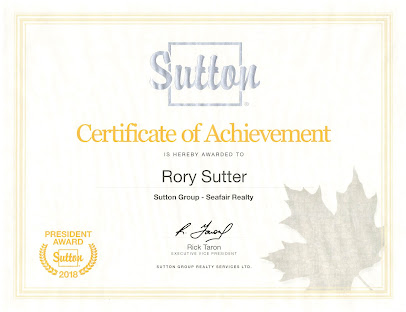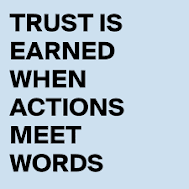You may see the signs everywhere, "Real Estate Licence in 5 Weeks". But, can you believe that five weeks? Today, anyone can quickly become a realtor, order business cards, and join any company they want, such as Sutton or Remax, by paying their monthly charges and the Board fees. But does that qualify them to negotiate on your behalf with your most important asset?
I have found that perception is everything in residential real estate, even with the industry's leading performers. So how can any agent correctly market, promote, and negotiate so many listings simultaneously and give the seller the level of personal service they deserve?
Many agents use unlicensed assistants to show their listings, but they are not permitted to say anything that could be viewed as selling, such as highlighting property attributes? Essentially, most assistants are there to unlock the doors. As a seller, consider who is showing your property and their qualifications and skill levels.
SOLD IS GOLDI work 100% for my clients exclusively and have never signed a dual agency agreement in my career when they were permitted. I believe in having undivided loyalty to the people I serve.
Rory Sutter is a strategic Realtor. He listed and sold my mom’s house in less than a week. What’s impressive is how he scheduled the showings to get multiple offers. The viewings were expected to be close enough together to ensure everyone knew there were other interested parties, thus creating a sense of urgency. Pricing the house right is critical. She got her asking price, thanks to Rory.
July Ono – Professional Real Estate Investor, Educator, and Mentor (From July News)
Through the years, I have worked with thousands of realtors on both sides of the fence. I was trained by the world's largest and most successful real estate brokerage company, Colliers International, where I served an apprenticeship under one of their top agents. However, I came to the company as a top salesman with my real estate license. I practiced a highly disciplined work ethic and honed my sales and negotiating skills over seven years.
Following Colliers, I worked on property acquisitions and project marketing through my company, Realstar Corporation. I was later recruited by B.C.'s top developer to manage their property acquisitions, and I negotiated individual contracts in the tens of millions.
With more than 36 years of hands-on real estate industry experience, I have found that my greatest enjoyment comes from real estate sales negotiation - this is where I shine.
I love to set goals with my clients in our first meeting based on their best outcomes. How could I make it a 10+? What you focus on, you get, and I prefer to focus on the most favorable results. The best part is that my testimonies will show when my clients see that we realized the best-case scenario.
You see, it is a partnership. You are hiring me to work with you to realize the best possible outcome for your family. This includes negotiating a favorable price, writing the best offers with good terms, dates, and deposits, finding another home, minimizing disruption of your family life, assisting you in all aspects of the sale, advising you, answering your questions, and ensuring that your interests are protected at all times.
I take these responsibilities very seriously and ask that, despite who you may know as an agent, you interview me for the job as a candidate. So please allow me to apply for the job. Let me show you how I sell homes for top dollar and help my clients buy in any market.
Warmly,
Rory























